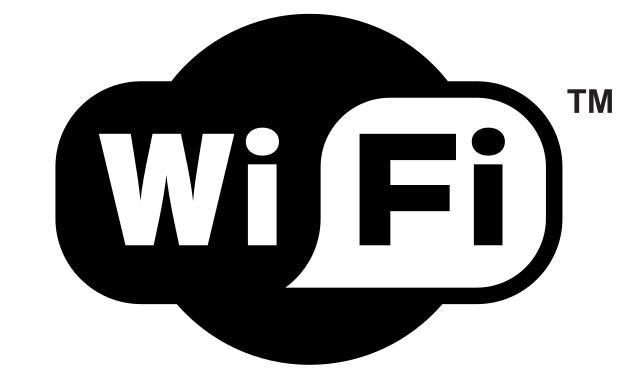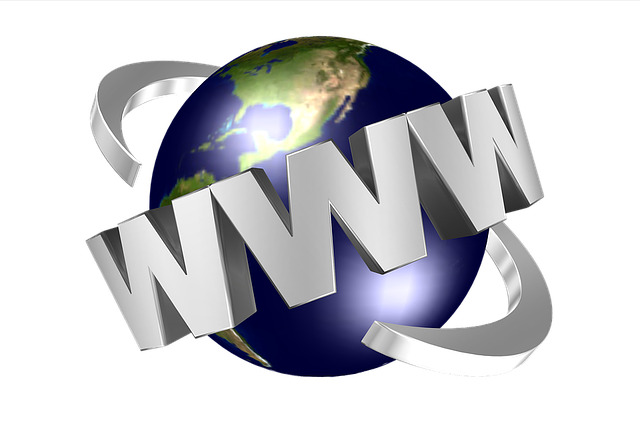Difference Between Wi-Fi and Internet
For years, the term Wi-Fi has been a catchword for wireless internet. Most of us use the word “Wi-Fi” to refer to our home broadband connection or free Wi-Fi hotspots which mean unlimited access to the internet on the go. But remember one thing: Wi-Fi and the internet are two completely different things. Internet is more like a language which allows one device to send and receive data or information to and from another device via the Internet Protocol. It’s like a massive network of networks that connects millions of computers globally so that users at one computer can interact or share information with users at another computer as long as they are connected to the internet. Wi-Fi is more like a facility that provides wireless internet access to smartphones, computers, or other devices within a specific range. So, let’s get to the difference now to better understand the two terms.

What is Wi-Fi?
Wi-Fi is the most common way to connect your computer to the internet wirelessly, without the need of physical wires. In technical terms, Wi-Fi is a wireless networking technology provides wireless internet access to smartphones, computers, or other devices within a set range. The ability to connect wirelessly to the internet on-the-go lets you check your emails, surf websites, check social media sites, send and receive chats, on your own time. Hotspot is the term used to describe an area in which users can have unlimited internet access using Wi-Fi hotspots. Wi-Fi hotspots have network specific names, often referred to as SSID, which you can use to connect to the particular hotspot.

What is Internet?
Internet is everywhere and has become a growing part of our lives. Internet is an interconnected network of computer networks in which user at one computer can communicate and share information with user at another computer. Internet emerged as a public communications medium in the 1990s but became a sensation over time. Advanced Research Projects Agency (ARPA) was the original creator of the internet technology and the idea was to create a network to facilitate communication between universities. Technological advances have made the internet adaptable over time and today, Internet is a widely-spanned network of networks around the world.
Difference between Wi-Fi and Internet
-
Meaning
Wi-Fi is a wireless networking technology that allows smartphones, computers, laptops, and other devices with built-in Wi-Fi to connect to the internet or communicate with each other wirelessly with the range. Most of the devices today support Wi-Fi to access a network to enjoy unlimited internet access and share network resources. Internet is more like a language, a self-sustaining facility that connects millions of computers globally using cables, telephones lines, satellites, or wireless connections. Internet is like a network of networks, an interconnected system that facilitates information sharing across the internet.
-
Technology
Wi-Fi is a standard wireless networking technology that uses radio waves to send and receive signals from nearby devices to provide internet access. It’s a networking protocol that allows devices to communicate wirelessly. The term Wi-Fi is often used synonymously with the term “wireless” but in a much broader sense. The Internet, on the other hand, is a telecommunication network, more like a networking infrastructure that uses the Internet Protocol suite (TCP/IP) to interconnect devices globally. Internet allows you to access data or information from other computers across the world using the TCP/IP protocol, whereas Wi-Fi is just a medium that allows you to access internet.
-
Working
Wi-Fi uses radio frequency waves to send and receive information across a network just like mobile phones but the most important part of a wireless network is an access point. An access point is nothing but a device that establishes links with wireless devices using Wi-Fi. The devices must be equipped with wireless network adapters to join a wireless network. Information passes through the internet using a set of predefined rules governed by the TCP/IP suite. These protocols provide a common language that both the devices can easily understand and use it to transmit data.
-
Dependability of Wi-Fi Vs. Internet
Intercommunication between devices is possible with Wi-Fi and a router, without the Internet. For example, a printer with built-in Wi-Fi connected to a Wi-Fi network can print without the internet. Wi-Fi is a facility that acts like a router to carry internet signals to your mobile devices so devices can communicate with each other over a Wi-Fi network without the internet. Likewise, internet does not rely on Wi-Fi to connect computers worldwide; however you can be connected to Wi-Fi but not the internet. Internet connects millions of computers worldwide with one network via the World Wide Web, or web.
Wi-Fi vs. Internet: Comparison Chart

Summary of Wi-Fi Vs. Internet
In a nutshell, the internet is an interconnected network of millions of computer networks around the world that are connected via cables, satellites, telephone lines, or wireless connections – all of which communicate in a single common language called the Internet Protocol suite. Wi-Fi is just one of the few ways to connect to a wireless network thereby accessing the internet. It’s a wireless networking technology that uses radio frequency waves to facilitate communication between nearby devices within a set range. In short, Wi-Fi is a way to accessing the internet from your smartphone, laptop, tablet, or any device with built-in wireless adapter. Both the terms are often used synonymously, but are very different from each other.
- Difference Between Caucus and Primary - June 18, 2024
- Difference Between PPO and POS - May 30, 2024
- Difference Between RFID and NFC - May 28, 2024
Search DifferenceBetween.net :
2 Comments
Leave a Response
References :
[0]Eck, Michael and Leonello Calvetti. The Internet: Inside and Out. NYC: Rosen Publishing, 2002. Print
[1]Weber, Sandra. The Internet. NYC: Infobase Publishing, 2003. Print
[2]Davis, Harold. Absolute Beginner's Guide to Wi-Fi Wireless Networking. Indianapolis: Que Publishing, 2004. Print
[3]Image credit: https://pixabay.com/en/internet-global-earth-communication-1181587/
[4]Image credit: https://upload.wikimedia.org/wikipedia/commons/thumb/a/ae/WiFi_Logo.svg/640px-WiFi_Logo.svg.png

I’m a 74 yr. old great grandmother, with a smartphone and lots of questions. Your article helped answer many questions. I needed to read it aloud thereby using as many senses as possible to understand as I figuratively touched and massaged the information prior to figuratively tasting and digesting. (If only words were chocolate! Or they emmited the fragrance of jasmine, but regardless I feel I have a blossom of understanding beginning to unfurl in my mind. Thank you for your simplicity!
Thank you for this article about the differences between Wifi and internet. It clarify my confused knowledge about the wifi and the internet.
Again thank you.